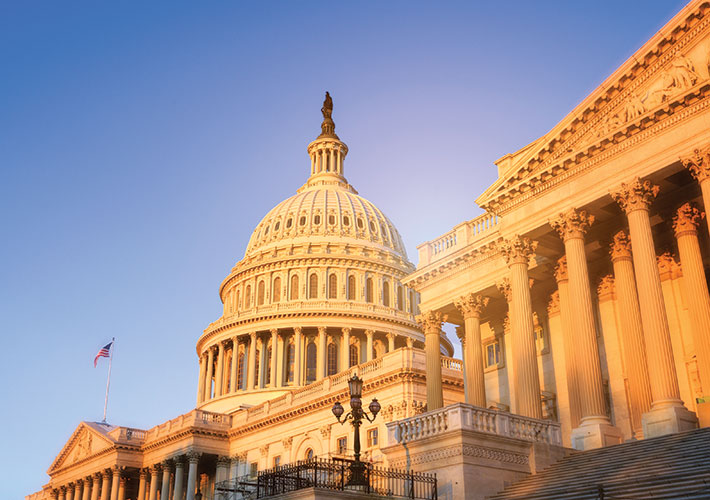
ASTM's D.C. Office
Staff connects ASTM information with governments and organizations globally.
You develop and use ASTM standards and our related services. But how do you raise awareness of these standards and services among businesses, trade associations and relevant government entities around the world that need to know about them?
You have a resource in ASTM's Washington, D.C., office.
D.C. staffers meet with policymakers, industry and trade organizations about standards and technical information, which help make commerce and legislation more effective.
If you need information or have a question, you can call the Washington office. If you have an issue with using an ASTM standard in a market where a standard is accepted or should be accepted, the D.C. office wants to hear from you (contact info below).
"The ASTM Washington office is on the front lines of helping companies achieve their global business objectives," says Jeff Grove, vice president of global policy and industry affairs, who heads up the Washington office. "We connect the work of our technical committees with those in the U.S. Congress, the administration, federal agencies, business and trade associations here and abroad, and other organizations that seek ASTM's assistance and expertise on regulatory, trade and manufacturing issues."
Also in the D.C. office are Anthony Quinn, director of public policy and international trade, and Sarah Shoemaker, manager of government and industry affairs. In addition, Grove oversees the ASTM office in Brussels, Belgium, where Sara Gobbi, ASTM's director of European Union affairs, is based.
Grove notes, "Some governments and regions of the world have perceptions or policies that can act as barriers to the acceptance and use of ASTM standards." He adds that some countries have policies creating preferences for standards from specific regional and international standards bodies, while a common misperception is that ASTM standards are American. The D.C. office has ongoing educational efforts to remove such barriers and to ensure that everyone knows that ASTM standards are in fact international, developed by a globally recognized process that meets the principles from the World Trade Organization for international standards. ASTM is known for being open and transparent, and its standards are referenced thousands of times in countries around the world.
The staff also monitors topics of interest to ASTM and its members, responds to calls about ASTM standards in various industries and engages in projects such as the following.
- Quinn recently testified at the U.S. International Trade Commission's hearing on the Trans-Pacific Partnership, noting that TPP is an opportunity to facilitate trade by eliminating unnecessary barriers, enhancing transparency and promoting greater regulatory cooperation and good regulatory practice. (Read the TPP article.)
- Washington, D.C., office staffers have been meeting with standards executives from U.S. federal agencies. (Federal policy requires that every U.S. federal agency designate a senior executive to serve as the agency's standards executive and participate in the Interagency Committee on Standards Policy). Their purpose: to discuss ways to strengthen the public-private partnership and to gain a better understanding of each agency's use of voluntary consensus standards.
- The D.C. office monitors issues and topics that may impact ASTM in various industry sectors such as drones/unmanned aircraft, hoverboards, chemicals (especially related to the modernization of the Toxic Substance Chemical Act) and smart textiles, and acts accordingly.
To contact the ASTM office in Washington, D.C., call or email Sarah Shoemaker (phone: +1.202.223.8399).
 SN Home
SN Home Archive
Archive Advertisers
Advertisers Masthead
Masthead RateCard
RateCard Subscribe
Subscribe Email Editor
Email Editor